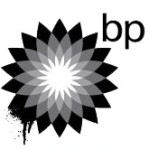It’s good to know that a full six-plus weeks after the BP rig explosion killed 11 workers and initiated the slow painful murder of the Gulf Coast economy and ecology, our ever-watchful federal government has decided to launch an investigation into whether BP actually did something criminal. Thanks for jumping on this, Uncle Sam.
Of course, regardless of how the investigation pans out, it seems that “criminal” may not end up being the right word to describe BP. That term doesn’t fully or accurately encapsulate the truly frightening nature of this corporation and its behavior. Turning to criminology for a little lexical help, we find a much more accurate term for BP’s behavior: psychopathic.
In the 2003 documentary The Corporation, psychologist and FBI criminal profiler Dr. Robert Hare described how corporate behavior neatly corresponds with a whole checklist of characteristics the World Health Organization uses to define psychopathic personalities. Those characteristics include:
- Callous unconcern for the feelings of others
- Reckless disregard for the safety of others
- Deceitfulness, repeated lying and conning others for profit
- Incapacity to experience guilt
- Failure to correspond to social norms regarding lawful behavior
Drawing the connections between this list and BPs actions surrounding the deepwater case is just too easy: on the remorselessness and callousness front we have CEO Tony Hayward’s recent remarks about wanting his life back, and BPs repeated finger pointing; for a helping of recklessness and deception, there’s the decision to use a cheaper, substandard casing for the well, and the falsified blowout preventer reports; and it’s difficult to imagine how such dishonesty and recklessness in the name of profit could qualify as lawful.
That’s five for five. Diagnosis: psychopath.
Recognizing that corporations like BP or Massey Coal are dangerous psychopaths is much more than a fun pastime for staunch environmentalists and anti-corporatists; that recognition is critical to empowering our criminal justice and political systems to determine how best to punish BP for its crimes, and more importantly, to how to address the underlying pathology which, if left uncorrected, will only lead to the commission of more crimes in the future.
In other words, fining BP billions of dollars for the Deepwater tragedy won’t be enough to stop it from committing similar crimes down the road because criminality is built into the corporation’s very nature. Protecting our society from this psychopath (and others like it) requires taking measures to directly address and correct the corporate-psychopathic tendencies listed above, measures such as rolling back limited liability, or ending shareholder primacy — whatever could stem the tendency to put short-term profitability above all else.
Of course when it takes the feds six weeks to decide that it might be worth sending investigators to poke around one of the worst environmental crime scenes in history, it may be a little more than wishful thinking to imagine the incident could motivate the government to take on anything as serious as corporate reform.
After all, this is an election year, and everyone knows that psychopaths make great campaign contributions.


